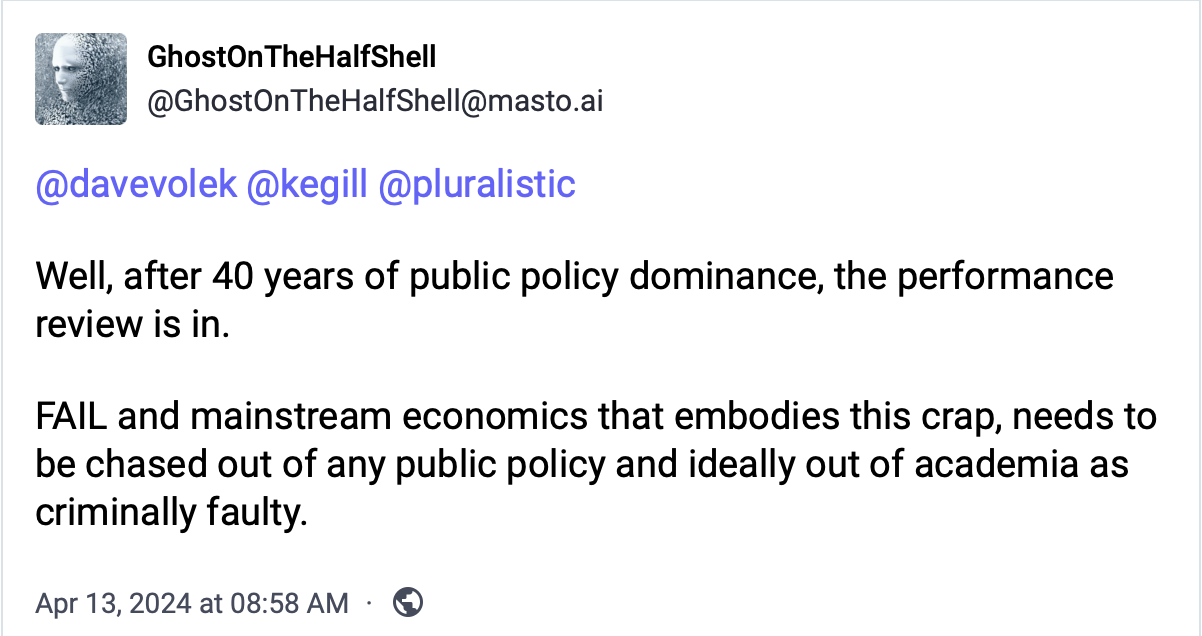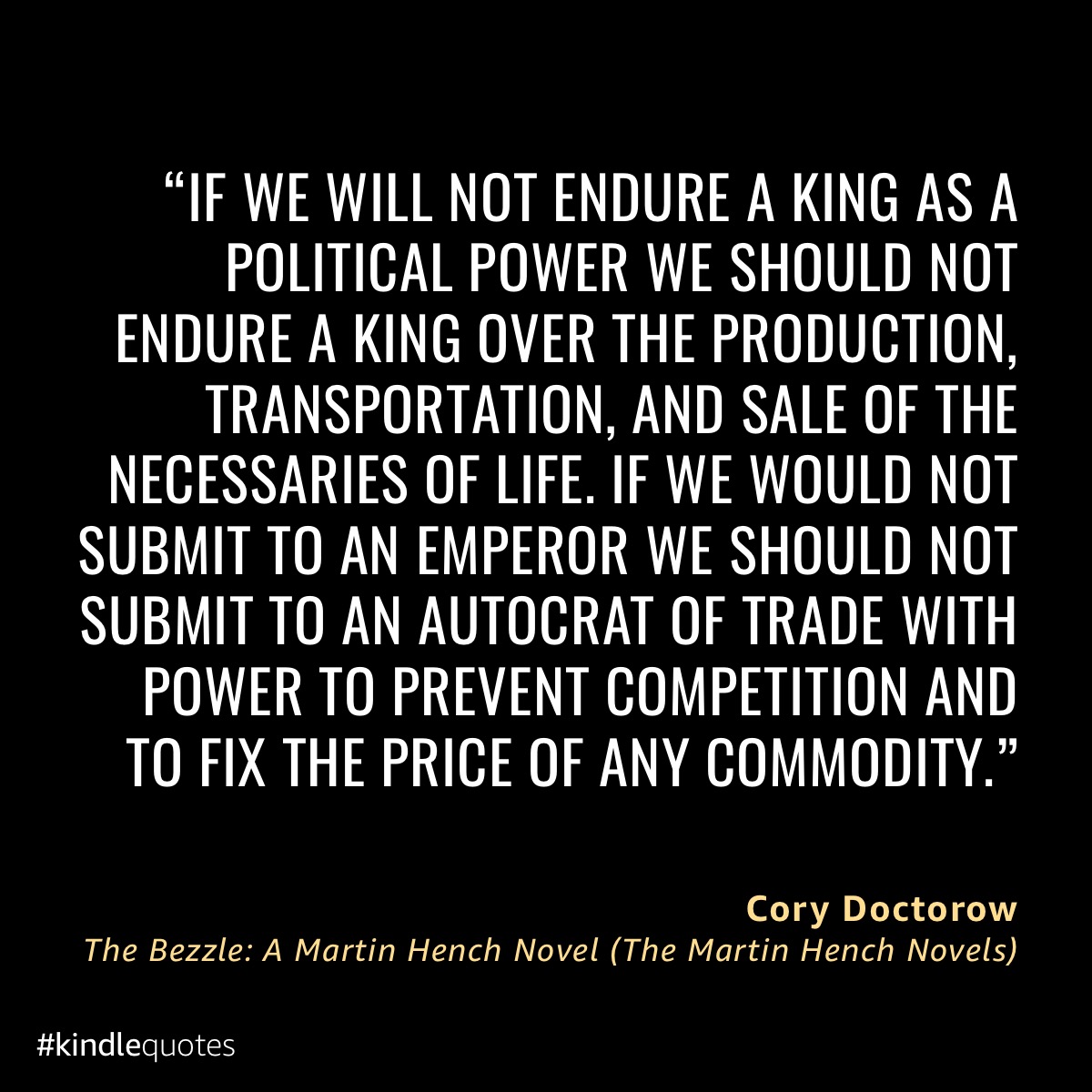In case you missed it, major corporations are major contributors to inflation, because they can raise prices with impunity.
From Robert Reich earlier this week:
In 2023, PepsiCo’s chief financial officer said that even though inflation was dropping, its prices would not be. Pepsi hiked its prices by double digits and announced plans to keep them high in 2024.
If Pepsi were challenged by tougher competition, consumers would just buy something cheaper. But PepsiCo’s only major soda competitor is Coca-Cola, which — surprise, surprise — announced similar price hikes at about the same time as Pepsi and has also kept its prices high.
The CEO of Coca-Cola claimed that the company had “earned the right” to push price hikes because its sodas are popular.
Of course, there is not perfect substitutability between Pepsi products and Coke ones. They. Taste. Different. To be clear: we know this market is IMPERFECT.
Surprise: in the fourth quarter of 2023, adjusted corporate profits after taxes hit a record (nominal) high of $2.8 trillion.
Clearly Milton Friedman’s philosophy that “[i]nflation is caused by too much money chasing after too few goods” is finally being seen as the hand-waving inanity that it’s become since his economic philosophy spread like a weed through American jurisprudence.
Reversing a trend
The ideology in the Justice Department and Federal Trade Commission has been an artifact of the Reagan Administration. Two men pushed it: Friedman, with the imprinteur of the academy, and Robert Bork, of law (he of the failed SCOTUS justice nomination).
Friedman is the godfather of shareholder primacy which, among other things, has given us the current shell that is Boeing. In 1976, he wrote “that businesses serve society best when they abandon talk of ‘social responsibilities’ and solely maximize returns for shareholders.”
Like Donald J. Trump, he spouted nonsense:
“The problem of social organization is how to set up an arrangement under which greed will do the least harm; capitalism is that kind of a system.”
Yet look where we are. From Mastodon:

That conversation was triggered in part by Cory Doctorow’s latest book, Beezle, as well as his essay, “No, ‘convenience’ is not the problem“:
In other words: by allowing corporations to flout antimonopoly laws, we set the stage for monopolies. The fault lay with regulators and the corporate leaders and finance barons who captured them – not with “consumers” who made the wrong choices. What’s more, as the biggest businesses’ monopoly power grew, your ability to choose grew ever narrower: once every mom-and-pop restaurant in your area fires their delivery drivers and switches to Doordash, your choice to order delivery from a place that payrolls its drivers goes away.
Monopolists don’t just have the advantage of nearly unlimited access to the capital markets – they also enjoy the easy coordination that comes from participating in a cartel. It’s easy for five giant corporations to form conspiracies because five CEOs can fit around a single table, which means that some day, they will:
In February, Biden Administration blocked the merger of Kroger and Albertsons, two grocery firms with geographic competition among their branded outlets.
If the merger were completed, Kroger and Albertsons would operate more than 5,000 stores and approximately 4,000 retail pharmacies and would employ nearly 700,000 employees across 48 states… executives for both supermarket chains have conceded that Kroger’s acquisition of Albertsons is anticompetitive, with one executive reacting candidly to the proposed deal: “you are basically creating a monopoly in grocery with the merger.”
Last week, The Atlantic boasted this headline: Do We Really Want a Food Cartel?
Sen. Elizabeth Warren (D-MA) has introduced the Price Gouging Prevention Act of 2024.
Unionization efforts are growing.
Maybe, just maybe, we are resurrecting these words from the late 19th century, brought to us today by the inestimable Doctorow:

Talk to me: BlueSky | Facebook | Mastodon | Twitter
Known for gnawing at complex questions like a terrier with a bone. Digital evangelist, writer, teacher. Transplanted Southerner; teach newbies to ride motorcycles. @kegill (Twitter and Mastodon.social); wiredpen.com
















